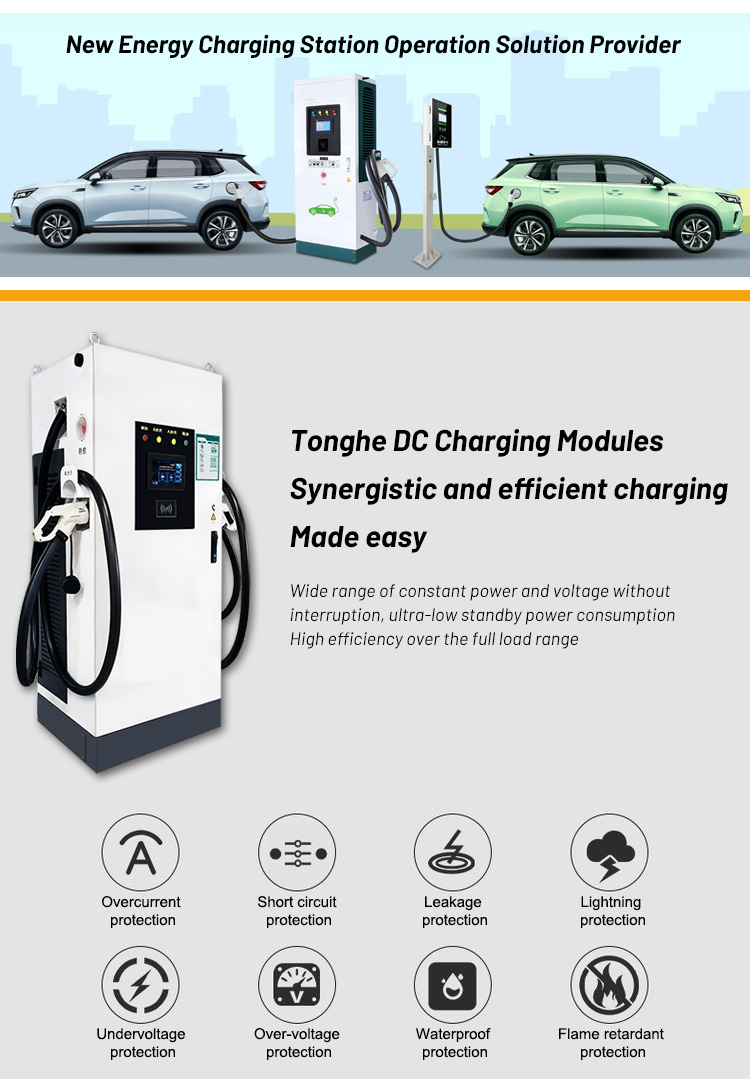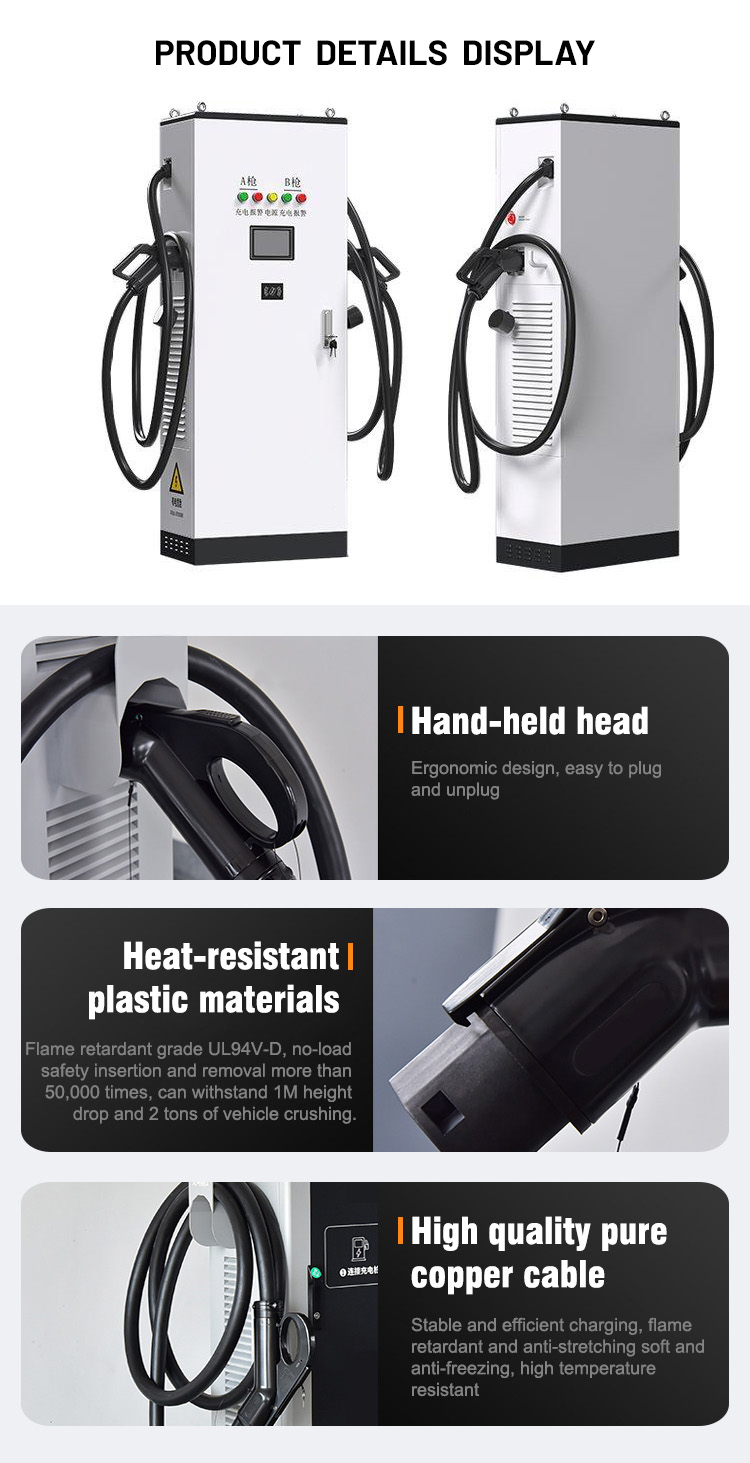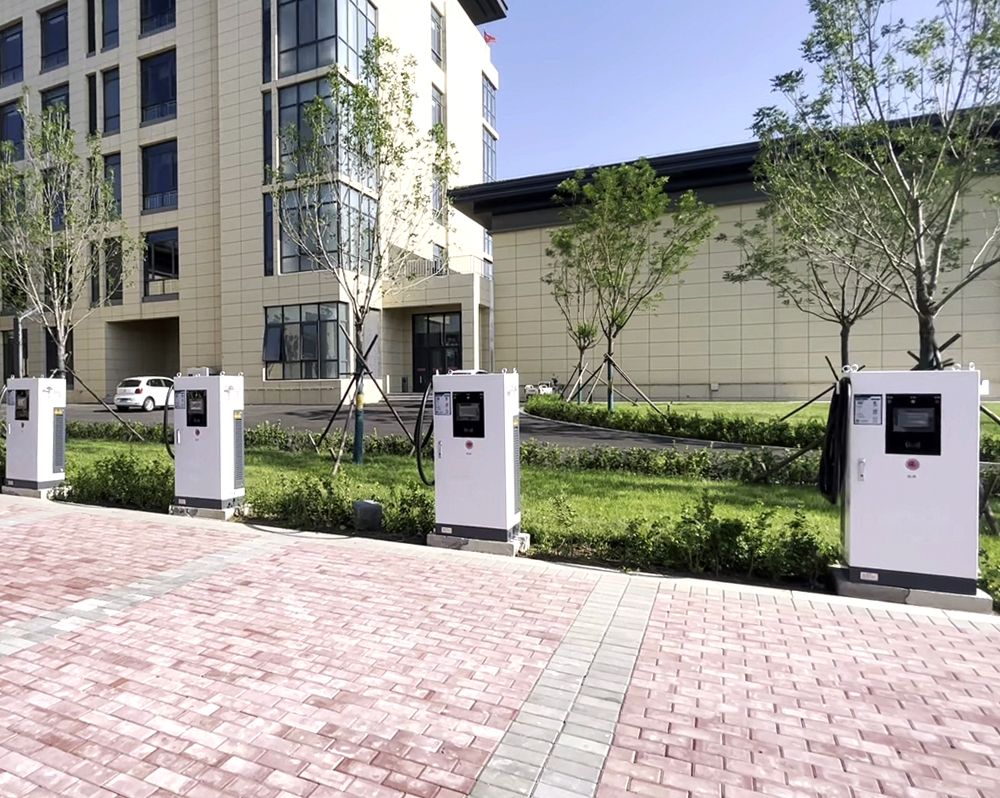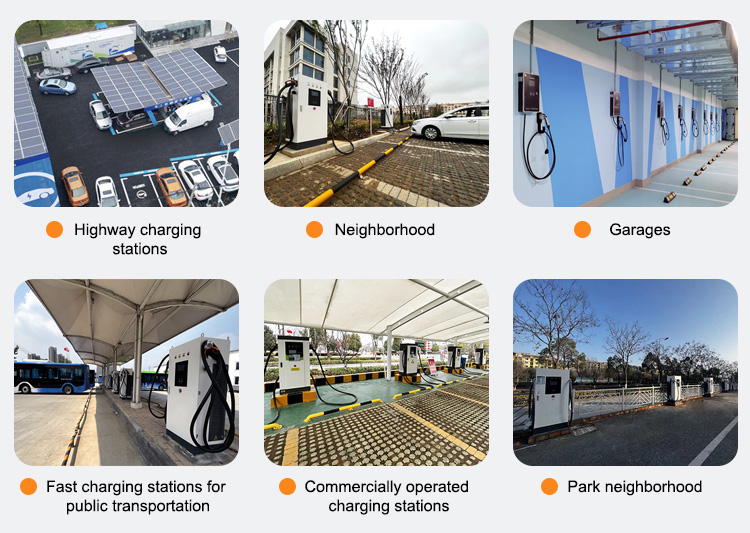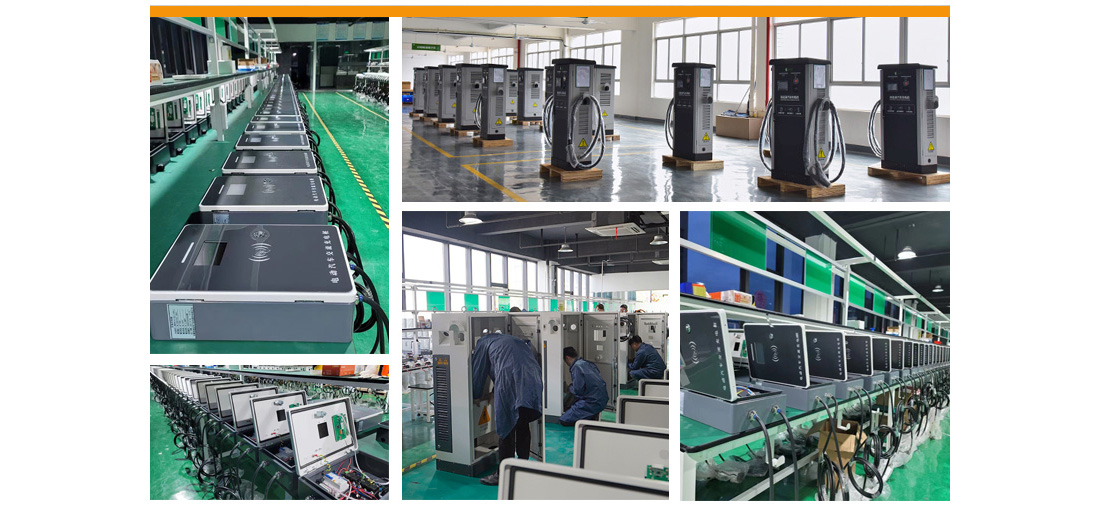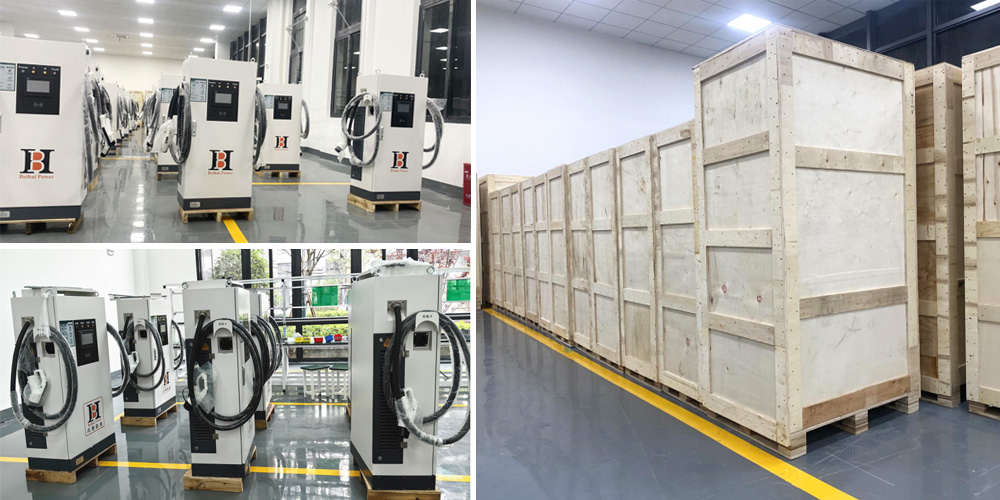80KW Floor-mounted EV DC Fast Charging Station
Product Description:
The DC charging Station (DC charging pile) adopts advanced power electronic technology, the core of which lies in the internal inverter. The inverter can efficiently convert AC energy from the power grid into DC energy and directly supply it to the battery of the electric vehicle for charging. This conversion process is done inside the charging post, avoiding the loss of power conversion by the EV on-board inverter, which significantly improves the charging efficiency. In addition, the DC charging post is equipped with an intelligent control system that automatically adjusts the charging current and voltage according to the real-time status of the battery, ensuring a safe and efficient charging process.
DC chargers are known for their high power charging capability. There are various power levels of DC chargers on the market, including 60kW, 80kW, 120kW, 160kW and even 240kW. These high power chargers are able to quickly replenish electric vehicles in a short period of time, greatly reducing charging time. For example, a DC charging post with a power of 100kW can, under ideal conditions, charge an electric vehicle’s battery to full capacity in about half an hour to an hour. The supercharging technology even increases the charging power to more than 200kW, further shortening the charging time and bringing great convenience to EV users.
Product Parameters:
| BeiHai DC charger | ||
| Equipment Models | BHDC-240KW | |
| Technical parameters | ||
| AC input | Voltage range (V) | 380±15% |
| Frequency range (Hz) | 45~66 | |
| Input power factor | ≥0.99 | |
| Fluoro wave (THDI) | ≤5% | |
| DC output | workpiece ratio | ≥96% |
| Output Voltage Range (V) | 200~750 | |
| Output power (KW) | 80 | |
| Maximum Output Current (A) | 160 | |
| Charging interface | 1/2 | |
| Charging gun length (m) | 5m | |
| Equipment Other Information | Voice (dB) | <65 |
| stabilized current precision | <±1% | |
| stabilized voltage precision | ≤±0.5% | |
| output current error | ≤±1% | |
| output voltage error | ≤±0.5% | |
| current sharing unbalance degree | ≤±5% | |
| machine display | 7 inch color touch screen | |
| charging operation | swipe or scan | |
| metering and billing | DC watt-hour meter | |
| running indication | Power supply, charging, fault | |
| communication | Ethernet(Standard Communication Protocol) | |
| heat dissipation control | air cooling | |
| the charge power control | intelligent distribution | |
| Reliability (MTBF) | 50000 | |
| Size(W*D*H)mm | 700*565*1630 | |
| installation method | floor type | |
| work environment | Altitude (m) | ≤2000 |
| Operating temperature(℃) | -20~50 | |
| Storage temperature(℃) | -20~70 | |
| Average relative humidity | 5%-95% | |
| Optional | 4G wireless communication | Charging gun 8m/10m |
Product Feature:
AC Input: DC chargers first input AC power from the grid into a transformer, which adjusts the voltage to suit the needs of the charger’s internal circuitry.
DC Output: The AC power is rectified and converted to DC power, which is usually done by the charging module (rectifier module). To meet high power requirements, several modules can be connected in parallel and equalised via the CAN bus.
Control unit: As the technical core of the charging pile, the control unit is responsible for controlling the charging module’s switching on and off, output voltage and output current, etc., to ensure the safety and efficiency of the charging process.
Metering unit: The metering unit records the power consumption during the charging process, which is essential for billing and energy management.
Charging Interface: The DC charging post connects to the electric vehicle through a standard-compliant charging interface to provide DC power for charging, ensuring compatibility and safety.
Human Machine Interface: Includes a touch screen and display.
Application:
Dc charging piles are widely used in public charging stations, highway service areas, commercial centers and other places, and can provide fast charging services for electric vehicles. With the popularization of electric vehicles and the continuous development of technology, the application range of DC charging piles will gradually expand.
Public transport Charging:DC charging piles play a vital role in public transport, providing fast charging services for city buses, taxis and other operating vehicles.
Public places and commercial areas Charging: Shopping malls, supermarkets, hotels, industrial parks, logistics parks and other public places and commercial areas are also important application areas for DC charging piles.
Residential area Charging:With electric vehicles entering thousands of households, the demand for DC charging piles in residential areas is also increasing
Highway service areas and petrol stations Charging: DC charging piles are installed in highway service areas or petrol stations to provide fast charging services for EV users travelling long distances.
Company Profil
Products categories
-

Phone
-

E-mail
-

Whatsapp
-

Top







